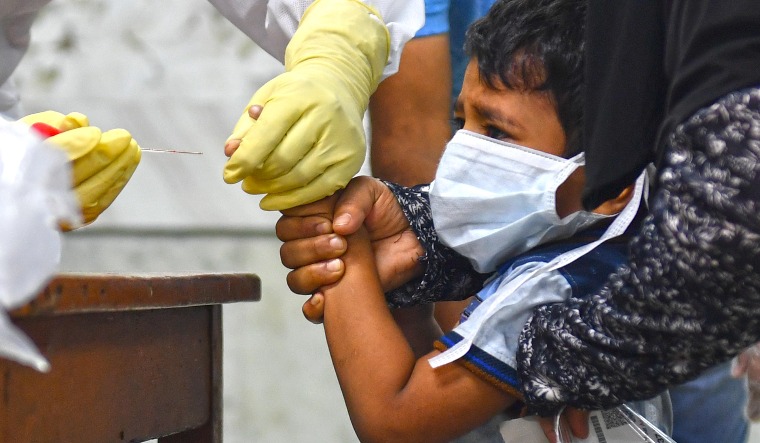There was panic across Bengaluru after nine people tested positive for coronavirus on Thursday. The nine, who were migrant workers, were primary contacts (roommates) of a 54-year-old migrant worker from Bihar who tested positive on Wednesday.
The 54-year-old, identified as P419, used to be a contract worker with the Bengaluru Metro Rail Corporation (BMRCL). But after the extension of the countrywide lockdown, P419, along with many other migrant labourers came to Bommanahalli’s Vidyajyothi Layout (slum). He stayed with nine others in a temporary shed and started working in a rice mill as a coolie (daily wager).
But on April 18, he developed symptoms similar to coronavirus and chest pain and got admitted to a private clinic. The following morning, he was referred to the government-run Jayadeva Heart Institute, which in turn referred him to Victoria Hospital, a designated hospital for COVID-19 cases. He was later sent to the Rajiv Gandhi Institute of Chest Diseases (RGICD), where he tested positive.
Alarmed by the development, the health authorities and Bommanahalli MLA Satish Reddy swung into action and traced 28 primary contacts and 120 secondary contacts of P419.
"Nine out of 28 have tested positive. However, all 28 have been quarantined in the hospital. The 120 secondary contacts have been shifted to a hotel to maintain social distancing. The locality has been sanitised and sealed," said MLA Satish Reddy, adding that the migrants are not residents of Hongasandra ward in his constituency, but had moved in recently.
"They are Metro workers who came to live with their relatives in this ward following the lockdown," said Reddy.
The detection of 10 cases from the slum has made the health and civic authorities jittery as the city has hundreds of labour camps and slums housing migrant workers.
Meanwhile, the state government has issued fresh lockdown guidelines, allowing many sectors to function, including the construction activities, where workers stay on site. But the relaxation of the lockdown norms would unleash a fresh wave of infection, fear experts.
"The lockdown should not be relaxed till May 3. Each suspected case should be isolated, tested and contact tracing and quarantine should be swift to break the chain," urged Reddy, acknowledging that a lot of fine-tuning of the system was needed to avert a tragedy.
While, the first points of contact had to be a fever clinic, and a sense of urgency in testing suspected cases was expected, the case of the migrant labourers exposes several lapses.
In the case of P419, there was a delay of three days in testing and contact tracing though the patient walked in with coronavirus-like symptoms. He chose to go to a private clinic rather than a nearby designated fever clinic. The doctor from the private hospital (now sealed) and his four employees have been forcibly sent to a quarantine facility. The patient's ordeal of hopping from one government hospital to another was totally avoidable, as it increased the risk of the infection spreading in the city. Most importantly, the delay in testing also delays contact tracing, which is crucial to containing the spread of the virus in the community.



